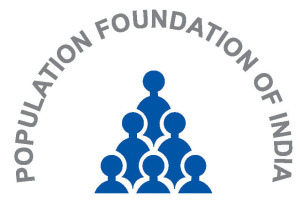- Home
- Medical news & Guidelines
- Anesthesiology
- Cardiology and CTVS
- Critical Care
- Dentistry
- Dermatology
- Diabetes and Endocrinology
- ENT
- Gastroenterology
- Medicine
- Nephrology
- Neurology
- Obstretics-Gynaecology
- Oncology
- Ophthalmology
- Orthopaedics
- Pediatrics-Neonatology
- Psychiatry
- Pulmonology
- Radiology
- Surgery
- Urology
- Laboratory Medicine
- Diet
- Nursing
- Paramedical
- Physiotherapy
- Health news
- Fact Check
- Bone Health Fact Check
- Brain Health Fact Check
- Cancer Related Fact Check
- Child Care Fact Check
- Dental and oral health fact check
- Diabetes and metabolic health fact check
- Diet and Nutrition Fact Check
- Eye and ENT Care Fact Check
- Fitness fact check
- Gut health fact check
- Heart health fact check
- Kidney health fact check
- Medical education fact check
- Men's health fact check
- Respiratory fact check
- Skin and hair care fact check
- Vaccine and Immunization fact check
- Women's health fact check
- AYUSH
- State News
- Andaman and Nicobar Islands
- Andhra Pradesh
- Arunachal Pradesh
- Assam
- Bihar
- Chandigarh
- Chattisgarh
- Dadra and Nagar Haveli
- Daman and Diu
- Delhi
- Goa
- Gujarat
- Haryana
- Himachal Pradesh
- Jammu & Kashmir
- Jharkhand
- Karnataka
- Kerala
- Ladakh
- Lakshadweep
- Madhya Pradesh
- Maharashtra
- Manipur
- Meghalaya
- Mizoram
- Nagaland
- Odisha
- Puducherry
- Punjab
- Rajasthan
- Sikkim
- Tamil Nadu
- Telangana
- Tripura
- Uttar Pradesh
- Uttrakhand
- West Bengal
- Medical Education
- Industry
PFI: Integrate reproductive health with emergency responses

On the occasion of World Population Day, Population Foundation of India (PFI) urged the government to integrate reproductive health into emergency responses.
“Even as India’s population efforts need to shift its focus from population stabilization to ensuring reproductive rights and empowering women, an important agenda at hand is to address the special needs of women and adolescent girls during human conflicts and natural disasters,” said Poonam Muttreja, executive director,
India is one of the most disaster-prone countries in the world with significant proportion of its population living in areas vulnerable to natural hazards such as floods, cyclones, droughts, epidemic fire and earthquakes.
“Women have unique health concerns, from hygiene to life-threatening complications related to pregnancy and childbirth,” Muttreja said noting that in every disaster, women and kids are twice vulnerable than others.
“The integration of sexual and reproductive health in disaster preparedness and response is quite important at all levels,” she added.
“Since the healthcare system in disaster zones are quickly overwhelmed with treating serious injuries and fractures, special facilities need to be set up to offer obstetric and ante-natal care on a priority. This can help save lives of pregnant women, newborns and protect one of the most vulnerable sections of the population from catastrophe,” said Muttreja.
“There is a need to integrate and coordinate the efforts of civil society, multilateral agencies, local partners and others on disaster preparedness to ensure that reproductive health is blended seamlessly into emergency responses,” she said adding that lack of access to sufficient food, water and medications and emotional trauma can significantly increase pregnancy-related morbidity and mortality.
“Other states must follow Maharashtra and Odisha, which have made their disaster management plans sensitive towards women,” she stated.
“Even as India’s population efforts need to shift its focus from population stabilization to ensuring reproductive rights and empowering women, an important agenda at hand is to address the special needs of women and adolescent girls during human conflicts and natural disasters,” said Poonam Muttreja, executive director,
India is one of the most disaster-prone countries in the world with significant proportion of its population living in areas vulnerable to natural hazards such as floods, cyclones, droughts, epidemic fire and earthquakes.
“Women have unique health concerns, from hygiene to life-threatening complications related to pregnancy and childbirth,” Muttreja said noting that in every disaster, women and kids are twice vulnerable than others.
“The integration of sexual and reproductive health in disaster preparedness and response is quite important at all levels,” she added.
“Since the healthcare system in disaster zones are quickly overwhelmed with treating serious injuries and fractures, special facilities need to be set up to offer obstetric and ante-natal care on a priority. This can help save lives of pregnant women, newborns and protect one of the most vulnerable sections of the population from catastrophe,” said Muttreja.
“There is a need to integrate and coordinate the efforts of civil society, multilateral agencies, local partners and others on disaster preparedness to ensure that reproductive health is blended seamlessly into emergency responses,” she said adding that lack of access to sufficient food, water and medications and emotional trauma can significantly increase pregnancy-related morbidity and mortality.
“Other states must follow Maharashtra and Odisha, which have made their disaster management plans sensitive towards women,” she stated.
Meghna A Singhania is the founder and Editor-in-Chief at Medical Dialogues. An Economics graduate from Delhi University and a post graduate from London School of Economics and Political Science, her key research interest lies in health economics, and policy making in health and medical sector in the country. She is a member of the Association of Healthcare Journalists. She can be contacted at meghna@medicaldialogues.in. Contact no. 011-43720751
Next Story


